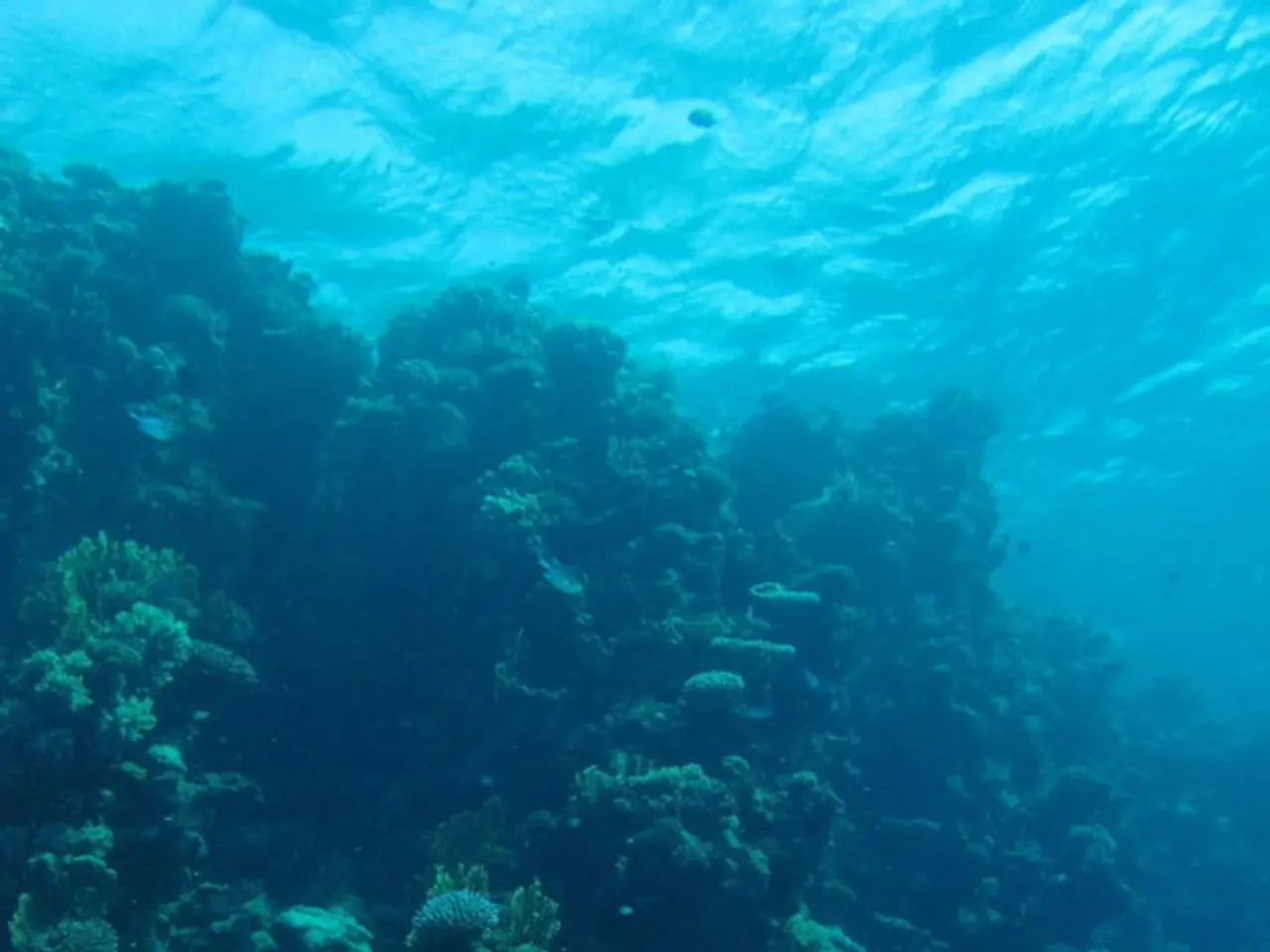Plummeting Numbers of Earth's Most Common Life Form
The study of marine ecosystems has revealed some concerning trends, with researchers indicating that the oceans are currently experiencing unusually high temperatures due to anthropogenic global warming.
One of the key findings of the study is the potential impact on two common marine phytoplankton species, Prochlorococcus and Synechococcus. Prochlorococcus, a tiny cyanobacterium, may have a limited ability to adapt to rapid warming due to its streamlined genome, which could limit its stress response genes. The division rate of Prochlorococcus cells only increases up to a water temperature of about 28 degrees, after which it drops sharply and reaches a value at 31 degrees that is typical for conditions far from optimal for Prochlorococcus.
On the other hand, computer models suggest that Synechococcus could potentially benefit from climate change and at least partially fill the ecological niche that Prochlorococcus threatens to leave behind at higher water temperatures. However, Synechococcus shows adaptation to higher temperatures but likely does not fully prevent or replace the ecosystem services provided by Prochlorococcus, especially regarding global oxygen production and carbon fixation.
The study's major weakness lies in the sampling, which was limited to the surface layers, leaving out what's happening in deeper layers. This limitation, along with the fact that only a few measurements have been taken in spatially limited marine areas, means that less common heat-tolerant variants have not been adequately captured by the method.
Moreover, concerns have been raised about the measurement method used in the study, with Bernhard Fuchs from the Max Planck Institute for Marine Microbiology in Bremen stating that it is outdated.
Regional surface water temperatures could exceed current ranges by the end of the century under both moderate and high warming scenarios, with average sea temperatures potentially rising by 3.8 degrees Celsius under the RCP8.5 concentration pathway with continued high greenhouse gas emissions.
The potential collapse of the Atlantic Meridional Overturning Circulation could fundamentally change the world, but its likelihood and timing remain uncertain. As the world continues to warm, it is crucial to monitor these changes and understand their potential impacts on marine ecosystems.
Read also:
- Peptide YY (PYY): Exploring its Role in Appetite Suppression, Intestinal Health, and Cognitive Links
- Toddler Health: Rotavirus Signs, Origins, and Potential Complications
- Digestive issues and heart discomfort: Root causes and associated health conditions
- House Infernos: Deadly Hazards Surpassing the Flames








